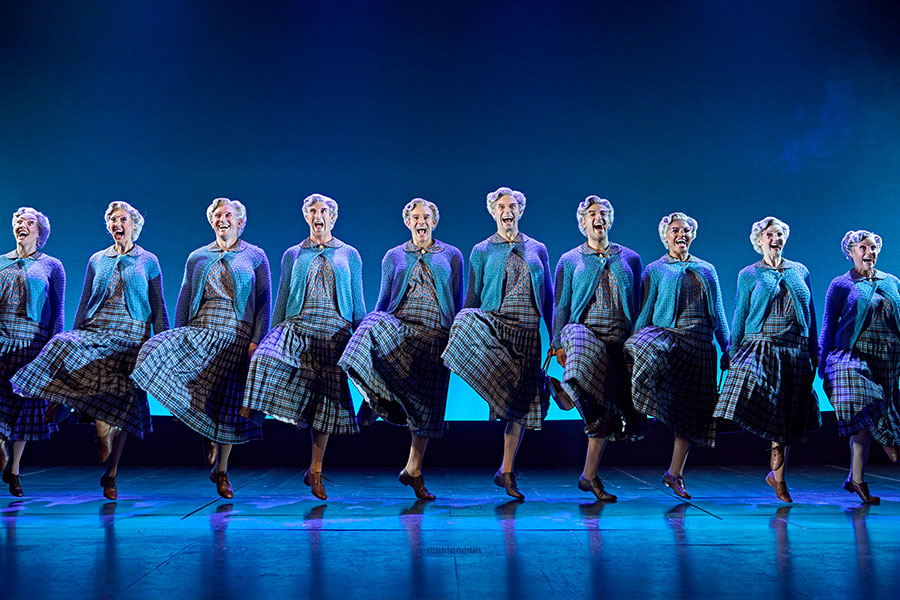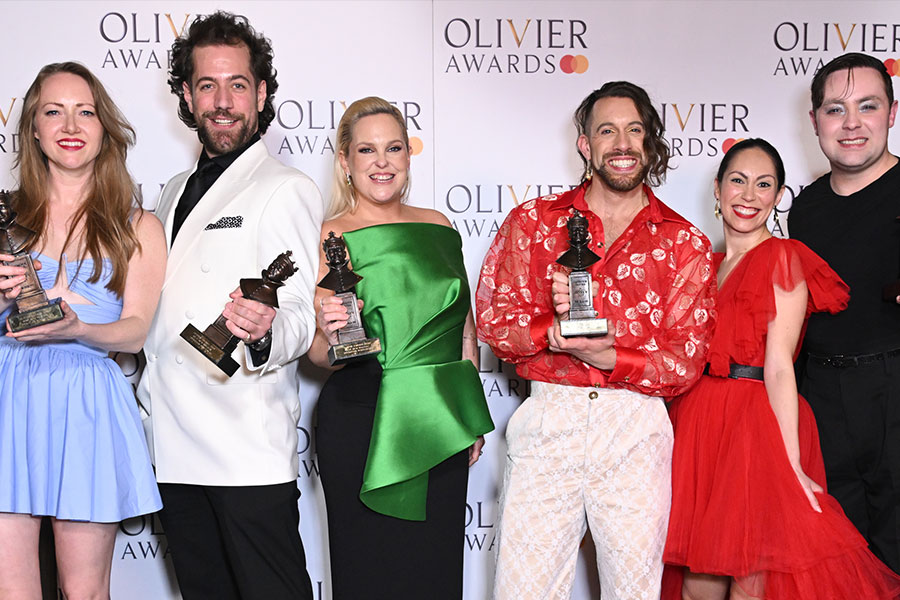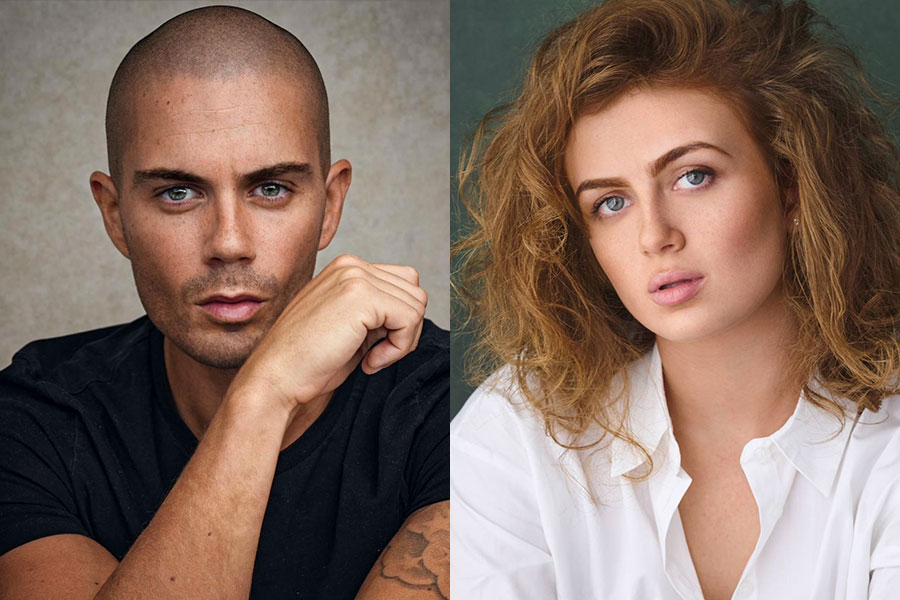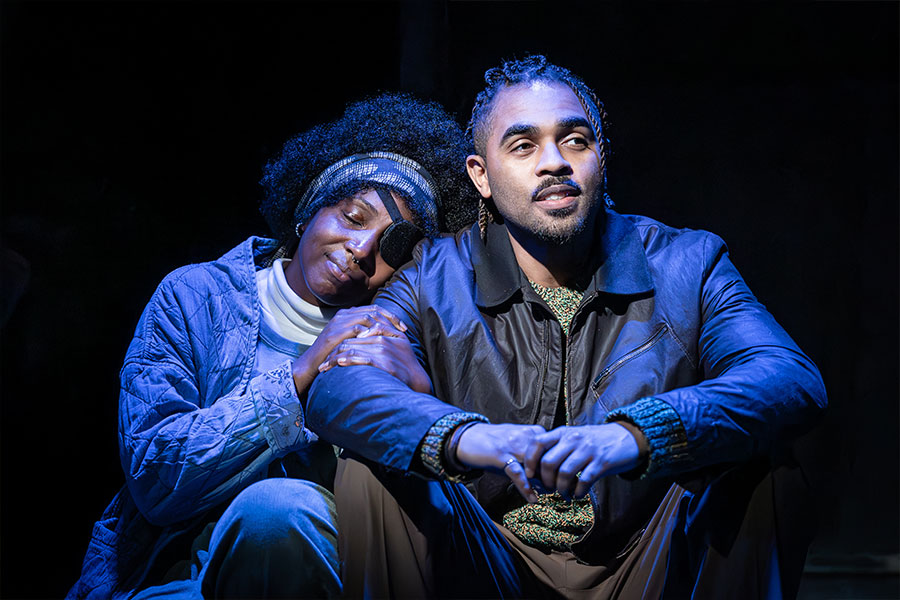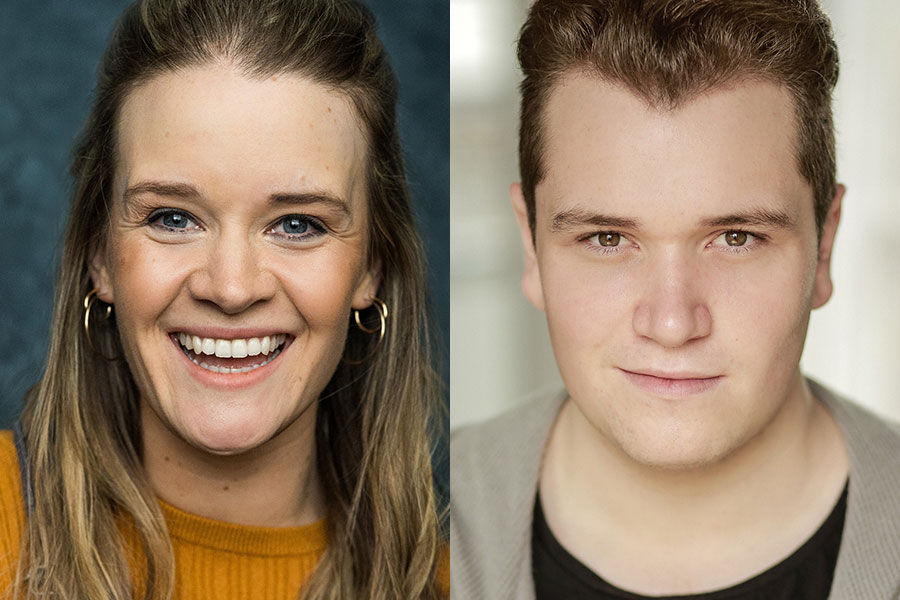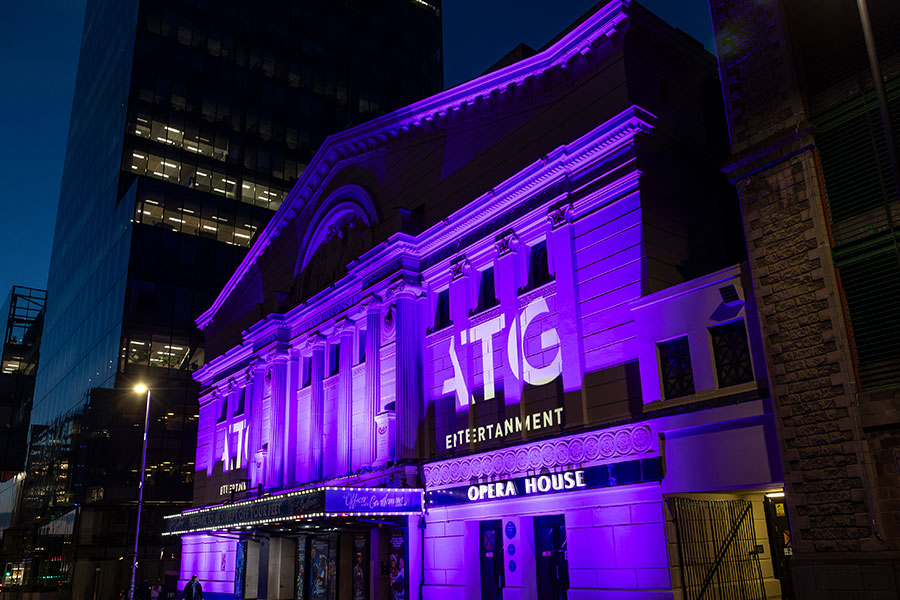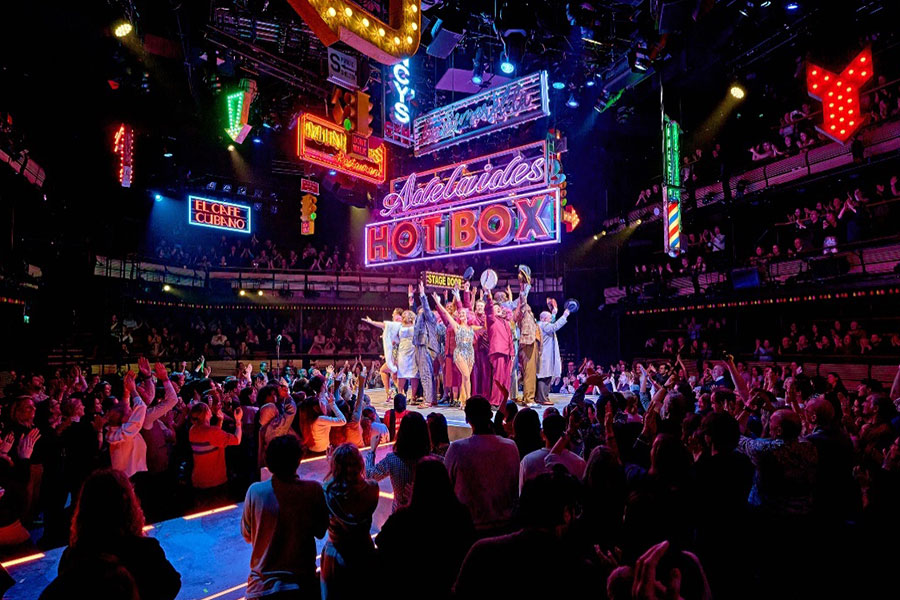20 Questions With… William Gaunt
William Gaunt’s many stage acting credits include Humble Boy, Albert Speer, The Cherry Orchard, Look Back in Anger, The Mysteries and An Inspector Calls, all at the National Theatre.
In the West End, he has starred in When Did You Last See Your Trousers at the Garrick, Having a Ball at the Comedy, Run for Your Wife and Travels with My Aunt at the Whitehall Theatre, as well as Murder My Misadventure and The Miracle Worker. He has also featured in Macbeth at the Almeida and, earlier this year at the Donmar Warehouse, The Wild Duck.
Gaunt has toured the UK in 84 Charing Cross Road, The Haunted Hotel, California Suite and Cat on a Hot Tin Roof and has travelled to India, Pakistan, Hong Kong, Kenya, Tanzania, Iran, Egypt, Tunisia, Japan and Korea playing Macbeth for the British Council.
Also a director, Gaunt was artistic director of the Liverpool Playhouse for two years and has directed productions there and in Farnham, Cheltenham, Manchester, Birmingham and Coventry. In the West End, his directing credits include Here’s a Funny Thing at the Fortune Theatre and One for the Road at the Lyric.
On television, Gaunt is probably best known for starring alongside Penelope Keith in Next of Kin. He has also starred in Sergeant Cork, which made him a household name, No Place Like Home and The Champions, which gained a cult following. His other TV credits include Z Cars, Heartbeat, Midsomer Murders, Holby City and The Vice. On film, he has appeared most recently in Bridget Jones: The Edge of Reason.
Gaunt is now reprising his role in Gates of Gold, Frank McGuiness’ play exploring the friendship between Hilton Edwards and Michael MacLiammoir, the founders of Dublin’s Gate Theatre, which has a limited run at the West End’s Trafalgar Studio 2 from 21 November to 16 December 2006. The play was first seen at the Gate, and received its British premiere at the fringe Finborough Theatre in southwest London in November 2004, directed by Gavin McAlinden, who also directs this revival.
Date & place of birth
Born 3 April 1937 in Pudsey, Yorkshire.
Lives now in
Chiswick, west London.
Training
Royal Academy of Dramatic Art (RADA).
What made you want to work in theatre?
It’s so long ago I can’t remember really. I go right back – I did a lot of amateur acting when I was a teenager and then went into the army and came out and went to RADA. I’ve never had any other career unless you count two years as a soldier. I think it’s something I just always did.
First big break
I think in TV it was Sergeant Cork back in the early Sixties. Then I did The Champions which was sort of an adventure series in the late Sixties. But then I changed course. About ten years ago, I went to the National and was there for about five years on and off, which was really my proper theatre break.
Career highlights to date
My recent work in theatre, The Wild Duck, was wonderfully successful which was most enjoyable, and two plays with Simon Russell Beale. And Macbeth. And I particularly enjoyed The Mysteries.
Favourite productions
I went into Stephen Daldry’s production of An Inspector Calls. I loved working with him on that.
Favourite directors
Stephen Daldry, Michael Grandage, and Gavin on this. I am very much enjoying working with Gavin, he’s definitely up and coming. To be a good director, you’ve got to like actors and understand how to handle them. You’ve got to be encouraging and not bully actors. They need to focus on the carrot rather than the stick.
Favourite playwrights
Definitely Tennessee Williams, and several of the other Americans including Arthur Miller. And Frank McGuiness. Frank is a sensational playwright.
Favourite co-stars
I enjoyed working with Dianna Rigg very much, I worked with her in TV and then in Humble Boy. And Simon Russell Beale I think is a fantastic actor.
What roles would you most like to play still?
I don’t know really. I think I’d like to have a shot at Lear but not in the open air, somewhere comfortable! I don’t think there are any I’d really like to reprise.
Do you prefer acting or directing?
I don’t do much directing these days. I certainly prefer acting – directing is too much responsibility. Actors have a lovely life. They come in and grumble and then go home after rehearsal. Directors have everyone’s stress and responsibility on their shoulders.
Do you prefer acting on stage or screen?
Now, I definitely prefer theatre because TV these days is so quick and impersonal. Even if you have a reasonable sized part in something, often they only require you for a few days and then the rest of it is shot when you’re not there. In the old days, it used to be much more like theatre. You’d rehearse and then record. But these days there’s no rehearsal, they cast as close to type as they can and expect you to arrive, go through the lines and do it. That has its own advantages, but I much prefer theatre where you can enjoy the creative process and play in front of an audience.
What was the last stage production that had a big impact on you? And the first?
Honour was very good, tremendous. I enjoyed that a lot at the National with Corin Redgrave. The first stage show I saw was a pantomime in Leeds. They used to run from Christmas until Easter and were tremendously lavish. That was what first fired me up about theatre.
What might you have done professionally if you hadn’t become involved in theatre?
I think I’d have like to have been a geologist or anthropologist.
What would you advise the government – or the industry – to secure the future of British theatre?
Put more money in but be selective about where they put it. It needs to go to the smaller regional theatres and anywhere where theatre is sort of gestating, not the huge West End houses.
Favourite books
I’ve just been reading one or two things I’ve enjoyed – We Need to Talk bout Kevin by Lionel Shriver is a very good one.
Favourite holiday destinations
I love going to Greece.
Favourite after-show haunts
A good pub is essential. I like to have a pint with the company and just relax. A good pint in a good pub with my friends or colleagues is really all I need after a show – which I shall be doing tonight!
Why did you want to accept your role in Gates of Gold?
I was in Stockholm walking along by the sea when I had a phone call from my agent asking if I’d like to do a little play in a pub theatre. I thought, that’s the last thing I really want to do, but as you do, I said get them to send me a script. I was really depressed when I got off the phone, but I read it and it was so fantastic I demanded to do it – I said clear the decks, I’ve got to do this play! And it was tremendously successful at the Finborough. It got five-star reviews and was a sheer pleasure really, such an enjoyable event. Of course, the Finborough is a very small theatre with only 50 seats. The play only ran for just over three weeks and it was completely sold out. So then we really wanted to bring it into town, but we knew we had to go to a small theatre and it took two years to get here. We tried to persuade the Almeida and the Donmar to do it first – but they already had Frank McGuiness projects in the pipeline, so they had good reasons for not doing it. And then fortunately we got into Trafalgar Studios.
How would you describe your character?
At the moment, I’m on tour playing Big Daddy in Cat on a Hot Tin Roof, that huge great bull of a man who is dying. In Gates of Gold, my character is this gloriously over the top old queen basically, an old actor who wears make-up out of the theatre as well as in and a rather disastrous black wig because he doesn’t want to lose his youth. He’s wonderfully flamboyant – you couldn’t have two characters that are more different! But there is a similarity in that they are both larger than life, and both coming to the end of their lives.
What’s it like to reprise your performance two years on?
It’s always strange doing a part again because you remember what you did very well, but you often don’t remember why you did it! So you have to unravel what you worked on before. It’s very good if you get some new input into it with new people. We’ve got three new people in the cast of five so that makes it easier really. You can start again pretty much from scratch when you have new cast members. My performance probably will change – hopefully it will because you don’t want to repeat what you did before. We’ve been able to do a read-though with Frank McGuiness there and we’ve had a lot of input from him. He’s been tremendously supportive of it. I think he liked the original production we did.
How has the fact that your character is based on a real person affected your approach to the role?
The characters in the play are based on Hilton Edwards and Michael MacLiammoir, but they’re not supposed to be them. It’s about the type of relationship they had, their long marriage and the fact they ran that theatre, but it’s not biographical in any way. The real people were just the inspiration for the characters. This is why I think it works better in London because in Dublin I think people expected it to be biographical. So it hasn’t really affected what I do, although obviously we’re aware of the inspiration behind the characters.
What are your future plans?
To spend Christmas with my family.
– William Gaunt was speaking to Caroline Ansdell
Gates of Gold runs at the West End’s Trafalgar Studio 2 from 21 November to 16 December 2006.




